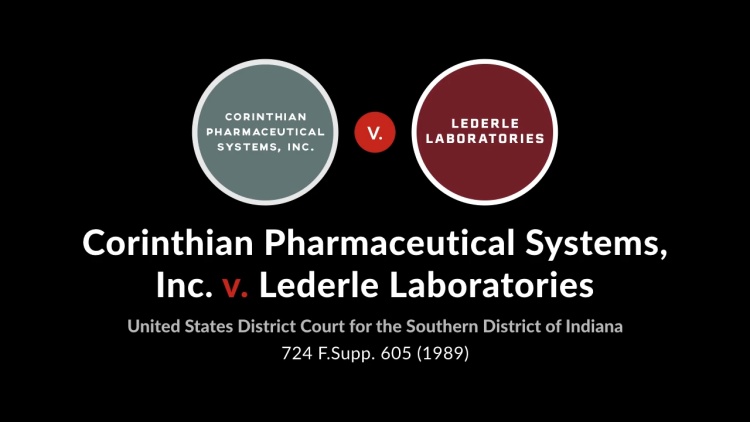Corinthian Pharmaceutical Systems, Inc. v. Lederle Laboratories
United States District Court for the Southern District of Indiana
724 F.Supp. 605 (1989)

- Written by Christine Hilgeman, JD
Facts
From 1985 to early 1986, Corinthian Pharmaceutical Systems, Inc. (Corinthian) (plaintiff) regularly purchased the DTP vaccine from Lederle Laboratories (Lederle) (defendant). Due to an increase in product liability lawsuits and the need for self-insurance, Lederle determined it was necessary to increase the price of the DTP vaccine from $51 to $171 per vial, effective May 20. Lederle informed its customers of the new price in a letter dated May 20, but Corinthian, having heard about the imminent price increase placed an order for 1,000 vials of the DTP vaccine at $64.32 per vial on May 19. On June 3, Lederle shipped 50 vials at the $64.32 price with a letter explaining that the rest of the order would be filled at the new price of $171 per vial; that Lederle’s policy was to charge the price in effect at the time of shipping, but it made an exception to this rule by shipping a portion of the order at the lower price; and that Corinthian could cancel its order for the balance of 950 vials if it chose. Corinthian sued Lederle for specific performance. Lederle filed for summary judgment arguing that no contract was formed for the sale of the 1,000 vials, or if a contract was formed, the 50 vials were merely an accommodation.
Rule of Law
Issue
Holding and Reasoning (McKinney, J.)
What to do next…
Here's why 907,000 law students have relied on our case briefs:
- Written by law professors and practitioners, not other law students. 47,100 briefs, keyed to 996 casebooks. Top-notch customer support.
- The right amount of information, includes the facts, issues, rule of law, holding and reasoning, and any concurrences and dissents.
- Access in your classes, works on your mobile and tablet. Massive library of related video lessons and high quality multiple-choice questions.
- Easy to use, uniform format for every case brief. Written in plain English, not in legalese. Our briefs summarize and simplify; they don’t just repeat the court’s language.





